#Universidad Autónoma de Madrid
Link
Si alguien está interesado la Universidad Autónoma de Madrid (UAM) ofrece 30+ cursos GRATIS¡Inscripciones cerrando pronto!
8 notes
·
View notes
Text


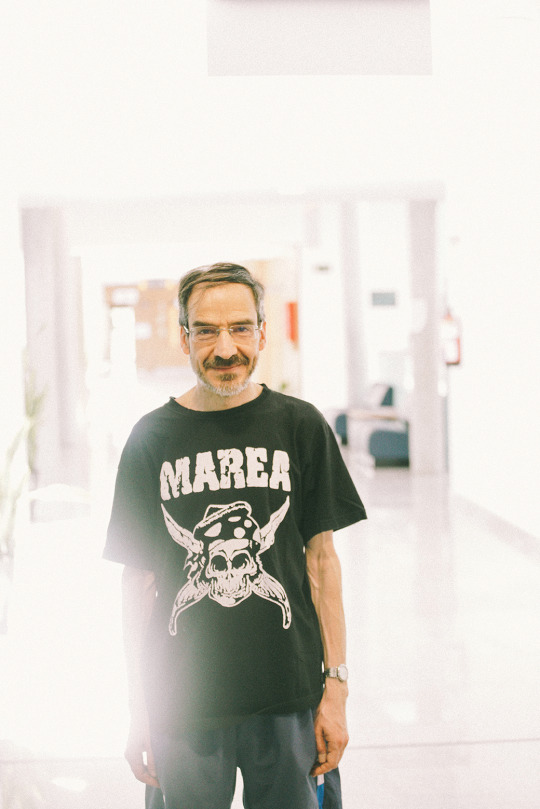
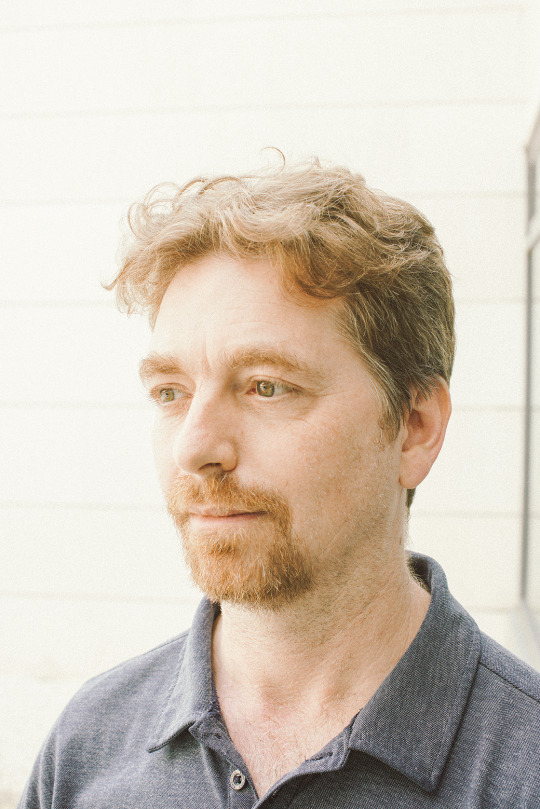
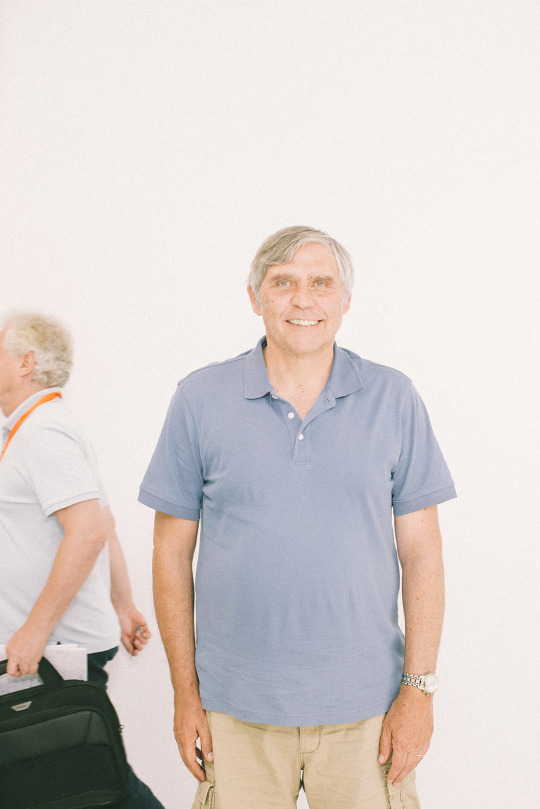
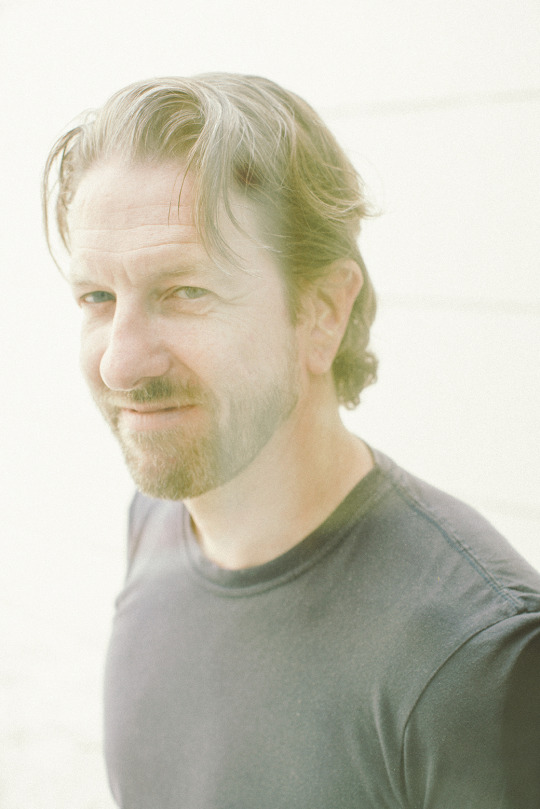
Photo essay shot for the ICMAT :: The Institute of Mathematical Sciences is a joint research institute of the Consejo Superior de Investigaciones Cientificas (CSIC, the Spanish National Research Council) and three Madrid universities: UAM, UC3M and UCM
www.icmat.es
#photography#inigo de amescua#portrait#inigo amescua#portrait photography#ICMAT#CSIC#uam#UC3M#UCM#maths#math#science#Universidad Complutense de Madrid#Universidad Autónoma de Madrid#Universidad Carlos III de Madrid#Research#photo journalism#photo documentary#documentary#photo#science photography
3 notes
·
View notes
Text
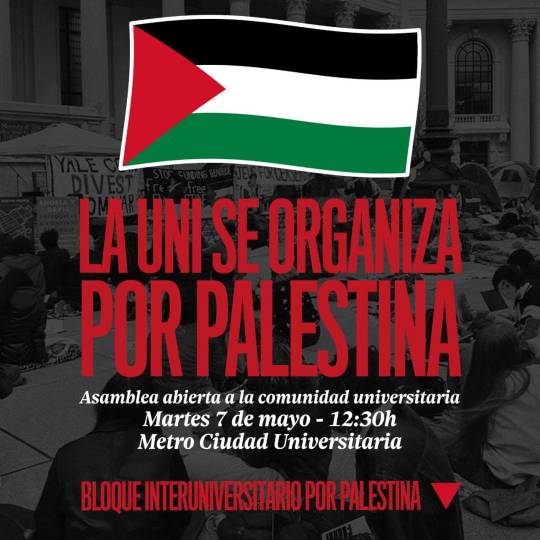
#madrid spain#madrid#Universidad Complutense#Complu#UCM#UC3M#UAM#Universidad Autónoma de Madrid#columbia university#free gaza#free palestine#palestine#gaza#israel is a terrorist state#Spain#españa#ciudad universitaria#ciu
2 notes
·
View notes
Note
don't answer if you don't feel comfortable with it, but what are you studying?
it's not a problem at all!! i'm currently studying an ma in ancient religions at uwstd (online), and i've studied a degree that's only found in one university in the whole country, the uam (i think there's a similar program with a different name in the uab?) that basically combines ancient history, archaeology and classical philology. this is my second ma, as i did one in both the uam and the ucm (it was interuniversitary that's why) that was kinda the continuation of my degree but with a specialization in ancient history (basically after doing my degree you can specialize in one of the three basic areas and i decided to go with history). if all goes well, by march next year i'll start my phd in ancient studies at the ucm :)
#ask#i'm also studying arabic on my own and i'm on a couple writing courses but that's not relevant i imagine#also#to avoid googling university abbreviations#uwtsd = university of wales trinity saint david#uam = universidad autónoma de madrid#ucm = universidad complutense de madrid#oh and uab = universitat autonoma de barcelona#(i don't know where accents go in catalan sorry)#also funny enough they recently changed the name of my degree which means i have an obsolete title lol
5 notes
·
View notes
Text

Forces and Signals
The leg folds of a fruit fly provides a model for studying how the mechanical forces resulting from cell proliferation co-ordinate with the pathway of molecular signals called NOTCH to precisely shape epithelial tissue into 3D organs during embryo development
Read the published research article here
Image from work by Alonso Rodríguez and colleagues
Centro de Biología Molecular Severo Ochoa (CSIC-UAM), Universidad Autónoma de Madrid, Madrid, Spain
Image originally published with a Creative Commons Attribution 4.0 International (CC BY 4.0)
Published in Development, April 2024
You can also follow BPoD on Instagram, Twitter and Facebook
#science#biomedicine#immunofluorescence#biology#cell proliferation#mechanics#epithelium#fruit flies#drosophila
7 notes
·
View notes
Text
“El secreto de la felicidad es tener gustos sencillos y una mente compleja, el problema es que a menudo la mente es sencilla y los gustos son complejos”
Fernando Savater

Fernando Fernández Savater Martín, es un filòsofo, profesor de filosofía y escritor español nacido en San Sebastián en junio de 1947, quien ha destacado en el género periodístico, en el campo del ensayo y también en la novela y el género dramático.
Realizó estudios en los marianistas de Aldapeta, pero a corta edad ya mostraba mucho interés por la lectura, en especial por las historietas y la lectura popular.
En la Universidad Complutense de Madrid estudió filosofía y poco tiempo después se dedicó a la enseñanza como profesor asistente de las facultades de ciencias políticas y de Filosofía en la Universidad Autónoma de Madrid.
Posteriormente ejerció como maestro en la Universidad de Educación a distancia y después en la Universidad del País Vasco.
Formación y trayectoria
Savater a compaginado su labor docente de filosofía y ética con la escritura de obras de ensayo divulgativo y acción (novela y teatro), alguna de las cuales como Ética para Amador (1991), Política para Amador (1992), El contenido de la Felicidad (1986), o El Valor de Educar (1997) han ejercido una notable influencia en España y en Latinoamérica, convirtiéndolo en un referente para toda una generación en España.
En su formación fue significativa la influencia de los filósofos de la escuela de Frankfurt, de Emile Ciorán y del pensamiento libertario de Agustín García Calvo.
Codirigió la revista de pensamiento Claves y fue uno de los animadores culturales mas destacados de la transición española. Desde hace varios años ha publicado artículos en la prensa nacional y extranjera en la que aborda temas de actualidad. Su obra ha sido traducida a varios idiomas.
Pensamiento y estilo
Irreverente en sus declaraciones, ha dado a conocer en su abundante obra escrita, sus opiniones sobre temas como nacionalismo, la naturaleza del poder o las posibilidades renovadoras de la democracia.
Savater es un escritor multiforme, contradictorio, pero con todo, siempre conserva un estilo marcado y un espíritu alegre, pleno y decidido. Entre sus estudios mas específicamente filosóficos se cuentan sus diversas investigaciones sobre los objetos y los mecanismos de la ética.
En sus obras, La tarea del héroe e Invitación a la ética (1982), Savater plantea y expone las cuestiones fundamentales de su pensamiento ético, la exigencia revolucionaria de la no-instrumentalización del hombre y la afirmación de la capacidad de elección del sujeto humano, a pesar de la presencia de instancias tales como el azar y la fatalidad.
Siguiendo a Spinoza, propugna una ética del querer, en contraposición a una ética del deber, en donde los seres humanos buscan de manera natural su propia felicidad y la Ética ayuda a clarificar esta voluntad y a mostrar las formas para su realización.
Su filosofía política evolucionó desde el pensamiento negativo libertario y anti progresista que mantuvo en los años setentas, hasta el individualismo democrático, socialdemócrata, liberal y universalista de su etapa posterior.
Sus opiniones criticas al nacionalismo vasco, lo han situado en medio de diferentes polémicas. Estuvo amenazado de muerte por la ETA y vivió protegido con escolta. También le han supuesto críticas a posturas tales como el derecho aborto y a la eutanasia.
Fuentes: wikipedia, hermidaeditores.com, biografias.es, revistaliterariakatharsis.org, biogarfiasyvidas.com
#citas de reflexion#notasfilosoficas#frases de reflexion#citas de escritores#filosofos#escritores#frases de escritores#fernando savater#novelistas#ensayistas#periodistas#españa#etica
36 notes
·
View notes
Text
@matsmadrid VOX ha invitado a la Asamblea de Madrid a Jesús Poveda, profesor de la UAM, conocido por ser "pro vida" y anti abo rtista. Quizá no se esperaba que acudiera a la Comisión de Sanidad Marta Carmona. diputada de Más Madrid y exalumna del profesor de la Universidad Autónoma de Madrid.
6 notes
·
View notes
Text


ESTA TOLETA: Viene a decir que en el resto de España somos unos vagos y no aportamos nada. Mala estrategia si quiere llegar a ser algo en la política del resto de España
.Esta mujer es la más embustera de españa su maldad no tiene límites y me da mucha pena los madrileños trabajadores que la votaron y ahora les quita todos los derechos mató 7.291 abuelos sin guarderías pocos colegios sin beca para la universidad las comidas de podridas y mucho mas
Me estoy tomando una birra y no sé si me la ha pagado esa señora o su hermano, yo juraría que he ido yo al súper pero en fin. Muchas gracias en madrileño.
Está señora está loca de atar,lo único q hace es q las otras comunidades autónomas sientan repulsa de ella!! Se cree el centro del universo, cuando en realidad es un barrio más del universo
Esta mujer es la más embustera de España su maldad no tiene límites y me da mucha pena los madrileños trabajadores que la votaron y ahora les quita todos los derechos mató 7.291 abuelos sin guarderías pocos colegios sin beca para la universidad las comidas de podridas y mucho mas
El Madrid ayusista es absolutamente REPELENTE. El resto maravilloso. Amén de que NO paga el 70% de los serv. públicos, porque la comunidad entera son 6'6 millones de 46. Eso sí, las empresas que tienen su sede central en Madrid, roban el 100% al resto de CCAA donde tienen sedes.
#Ayuso presume de que Madrid no tiene deudas#pese a que debe más de 33.000 millones de euros#TOLETA:
6 notes
·
View notes
Text
How to Obtain Bachelor's Degree in Spain?
Obtaining a Bachelor's degree in Spain can be an exciting and enriching experience. Spain is known for its world-renowned universities, high-quality education, and vibrant culture, which makes it a top destination for international students seeking a degree. In this blog, we will explore the steps necessary to obtain a Bachelor's degree in Spain.

Step 1: Choose Your Course and University
The first step towards obtaining a Bachelor's degree in Spain is to choose your course and university. Spain has several prestigious universities, including:
Universitat de Barcelona
Universidad Autónoma de Madrid
Universitat Autònoma de Barcelona
Complutense University of Madrid
Universitat Pompeu Fabra (Barcelona)
University of Navarra
IE University
Universitat Politècnica de Catalunya · BarcelonaTech (UPC)
Universidad Carlos III de Madrid (UC3M)
Universitat Politècnica de València
When choosing your university, it is essential to consider several factors such as course offerings, location, and cost of tuition. It is also crucial to research the admission requirements and language of instruction for each university.
Step 2: Meet the Admission Requirements
Once you have chosen your desired course and university, the next step is to meet the admission requirements. The admission requirements for universities in Spain vary depending on the university and the course.
Most universities in Spain require students to have completed high school or an equivalent degree program. International students may need to provide additional documents such as transcripts, standardized test scores, and language proficiency certificates.
It is important to note that some universities in Spain may require a certain level of proficiency in the Spanish language. Therefore, international students should consider taking Spanish language courses to improve their language skills.
Step 3: Submit your application
After meeting the admission requirements, the next step is to submit your application to the university of your choice. Most universities in Spain have an online application system, which allows students to apply from anywhere in the world.
The application process typically requires students to provide personal information, academic transcripts, language proficiency certificates, and other supporting documents. International students may also need to provide documents to prove their financial support.
Step 4: Apply for a Student Visa
International students who are not citizens of the European Union, European Economic Area, or Switzerland, need to obtain a student visa to study in Spain. The student visa allows students to enter Spain and stay for the duration of their studies. To obtain a student visa for Spain, students need to provide
Duly filled visa application form
Passport – With validity for the intended period of your stay in Spain
2 recent passport-size photos
proof of acceptance to a Spanish university,
proof of financial support,
a medical certificate.
Health insurance
Criminal record certificate
Students should apply for a student visa at the Spanish consulate or embassy in their home country.
Step 5: Arrive in Spain and register with the University
Once you have obtained a student visa, the next step is to arrive in Spain and register with the university. Students are required to register in person at the university's administrative office.
During registration, students need to provide their personal information, academic transcripts, and other supporting documents. Students may also be required to take language proficiency tests to determine their level of Spanish.
Step 6: Pay tuition fees
After registration, students are required to pay their tuition fees. Tuition fees in Spain vary depending on the course and the university. International students may also be required to pay an additional fee for healthcare and insurance.
Step 7: Attend Classes and Complete Your Degree
After paying tuition fees, students can attend classes and start working towards their Bachelor's degree. The duration of a Bachelor's degree program in Spain typically ranges from three to four years, depending on the course and university.
Students are required to complete all the required coursework, exams, and assignments to obtain their degree. In addition, students may need to complete an internship or a research project as part of their degree requirements.
Step 8: Obtain your Bachelor's degree
Upon completion of all the required coursework and degree requirements, students will obtain their Bachelor's degree. Students will receive a diploma from their university, which certifies that they have completed the required coursework and obtained a Bachelor's degree.
Obtaining a Bachelor's degree in Spain is a rewarding experience that offers many benefits. Not only does it provide access to high-quality education, but it also allows students to immerse themselves in the vibrant culture of Spain. However, the process of obtaining a degree in Spain can be challenging, particularly for international students. Therefore, it is crucial to plan and prepare well in advance to ensure a smooth and successful experience.
How to Make the Most of Your Study Abroad Experience in Spain?
Here are some additional tips for students who are considering obtaining a Bachelor's degree in Spain:
Research the culture: Spain has a rich and diverse culture, which is reflected in its universities and student life. Take the time to research and learn about the culture to better understand the social and academic environment.
Take advantage of student life: University life in Spain is exciting and offers many opportunities for personal and academic growth. Join clubs, participate in cultural events, and make connections with other students to make the most of your experience.
Budget carefully: Spain can be an expensive country to live in, particularly in major cities like Barcelona and Madrid. Therefore, it is crucial to budget carefully and plan for living expenses, such as housing, food, and transportation.
Explore the country: Spain is a beautiful country with many historical sites, natural wonders, and cultural attractions. Take advantage of your time in Spain to explore the country and immerse yourself in its rich history and culture.
In conclusion, obtaining a Bachelor's degree in Spain is an exciting and rewarding experience that offers many opportunities for personal and academic growth. Obtaining a Bachelor's degree in Spain requires commitment, dedication, and hard work. By following the steps outlined in this blog and taking advantage of the tips provided, you can ensure a successful and fulfilling experience.
Source:
#bachelors in spain#study abroad#study in spain#international students in spain#abroad education#univesities in spain
11 notes
·
View notes
Text

Happy Birthday, Your Majesty!!
Today, January 30th, King Felipe turns 55 years old. Born in Madrid, he was named after the first Borbón who reigned in Spain (Felipe V) and his parents are King Juan Carlos of Spain and Sofía of Greece.
He was baptised with the names of Felipe, Juan (after his paternal grandfather), Pablo (after his maternal grandfather), Alfonso (after Alfonso XIII, his great-grandfather) de Todos los Santos, his godparents were Queen Victoria Eugenia (his great-grandmother) and the Count of Barcelona.
In 1981 Felipe received the Collar of the Order of the Golden Fleece (an order of chivalry founded in 1430 in Bruges of which the King of Spain is Grand Master) and on his 18th birthday he swore loyalty to the King, before the Spanish Parliament, taking an oath to discharge his duties faithfully, to abide by the Constitution and the law and ensure that they are abided by, and to respect the rights of citizens and the Autonomous Communities, fully undertaking his institutional role as successor to the Crown.
His Majesty studied Law and Economy at the Universidad Autónoma de Madrid after receiving military training in the Army, Air Force and the Navy. The then Prince of Asturias finished his education with a Master's Degree in International Relationships at Georgetown University's Edmund Walsh School of Foreign Service.
On 22 May 2004 at the Santa María la Real de la Almudena Cathedral of Madrid the Prince of Asturias married Doña Letizia Ortiz Rocasolano. They have two daughters, both born in Madrid. Leonor, b. 2005, is the current Princess of Asturias and her younger sister Sofía, b. 2007 is second in line to the throne.
Felipe became King on 19 June 2014 after his father's abdication, taking the Oath set forth in Article 61 of the Constitution and was proclaimed King before Parliament, with the name of Felipe VI.
9 notes
·
View notes
Photo


Felipe and Letizia retrospective: November 26th
2004: Wedding of Fernando Gómez-Acebo (Infanta Pilar’s son) to Monica Martin-Luque.
2007: Lunch & Gala dinner offered to the president of Romania Traian Basescu
2008: Audiences at la Zarzuela & 25th Francisco Cerecedo journalism award dinner.
2009: 25th anniversary of the Spanish Confederation of Young Entrepreneurs AssociationS
2018: Audiences at la Zarzuela & Inauguration of the exhibition “Universidad Autónoma de Madrid: 50 years making the future”
2019: Letizia was awarded the Observatorio Award against Domestic and Gender Violence 2019 for “Most outstanding personality”
2021: Opening of the 143rd Assembly of the Inter-Parliamentary Union
F&L Through the Years: 877/??
#King Felipe#Queen Letizia#King Felipe of Spain#Queen Letizia of Spain#King Felipe VI#King Felipe VI of Spain#F&L Through the Years#November26
3 notes
·
View notes
Text

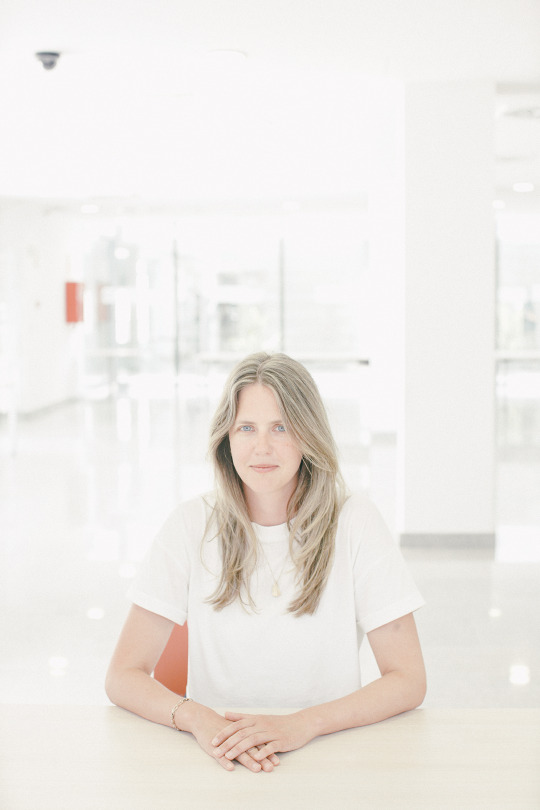
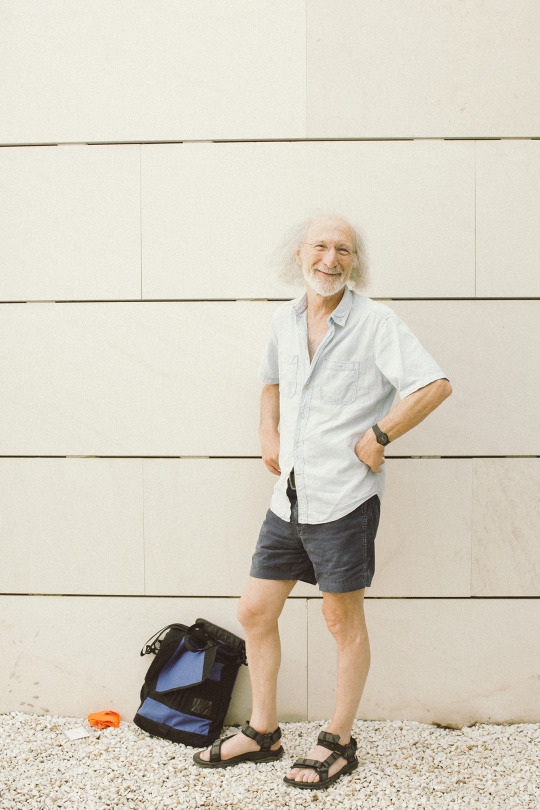

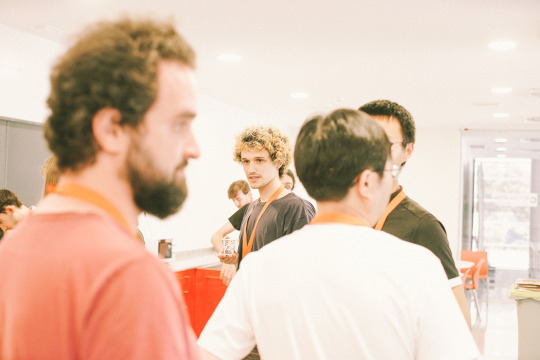

Photo essay shot for the ICMAT :: The Institute of Mathematical Sciences is a joint research institute of the Consejo Superior de Investigaciones Cientificas (CSIC, the Spanish National Research Council) and three Madrid universities: UAM, UC3M and UCM
www.icmat.es
#photography#inigo de amescua#portrait#inigo amescua#portrait photography#ICMAT#CSIC#uam#UC3M#UCM#maths#math#science#Universidad Complutense de Madrid#Universidad Autónoma de Madrid#Universidad Carlos III de Madrid#Research#photo journalism#photo documentary#documentary#photo
0 notes
Text
ANHQV en ‘Un tema al día’

Dada la repercusión de la serie de televisión ‘Aquí no hay quien viva’, en el podcast “Un tema al día” del diario digital eldiario.es, han dedicado un capítulo para hablar del legado que sigue dejando a día de hoy a la generación de jóvenes actual. En este capítulo, Juanlu Sánchez, presentador y editor del programa, entrevista a Marcos Méndez, director de ‘Vertele’ y a María Llinares, historiadora de la Universidad Autónoma de Madrid. Con ellos comentan las claves de las tramas de la serie y por qué todo ese trasfondo consigue calar a tantas generaciones.
En cuanto a la valoración de la narrativa, en este capítulo Juanlu Sánchez comienza presentando y contextualizando el tema protagonista, al mismo tiempo que introduce las cuestiones que más tarde se resolverán con la participación de los invitados. Se trata de un estilo bastante personal y directo, en el que resulta muy cercano con el oyente, no solo en este capítulo, sino en el resto de capítulos que conforman este podcast de temas de actualidad.
Es cierto que resulta muy amena la dinámica de la narrativa de este capítulo en particular y del podcast en general, ya que tan sólo tiene una duración de 14 minutos a lo sumo y resulta muy fácil de seguir en todo momento. En otros capítulos participan a veces algunos de los redactores de eldiario.es, aunque en este solo participa el propio Juanlu, ya que es suficiente con la intervención de las voces de los entrevistados.
Por lo que se refiere a la expresividad sonora, este capítulo utiliza una careta, un colchón musical bastante suave cuando habla el presentador, música diegética (en este caso la sintonía de la serie en cuestión) y cortes de voz de secuencias de la serie que más tarde utilizan para comentar cuestiones concretas.
2 notes
·
View notes
Text
Teresa de Jesús, el demonio y la inquisición, temas de una tesis doctoral
la visión teresiana del diablo y su relación con la Inquisición
“Entre la iluminación y la condena: la visión teresiana del diablo y su relación con la Inquisición” es el título de una tesis doctoral defendida el 25 de abril de este año en la Universidad Autónoma de Madrid (Facultad de Filosofía y Letras, Departamento de Filología Española) por Rocío Pérez-Gironda. La tesis fue dirigida por Maria Jesús Zamora Calvo. El texto de la tesis está disponible en…
0 notes
Text
Edith Brabata, una diseñadora de joyas de altos vuelos La Egresada de Diseño Industrial de la UAG ha destacado en este importante sector de Jalisco La Lic. Edith Brabata Domínguez, Diseñadora Industrial egresada de la Universida d Autónoma de Guadalajara (UAG) es una creadora de joyas y CEO de la firma Edith Brabata, distinguida por su geometría , simplicidad, combinación de texturas, acabado y anillos maximalistas. Con más de 15 años de experiencia en la indus tria joyera, cuenta con un showroom en las instalaciones del MIND en Jalisco y crea colecciones innovadoras por los mate riales que usa. Ha participado en pasarelas nacionales e internacionales, la Pasarela Cibeles, hoy conocida como la Merc edes Benz Fashion Week Madrid, en colaboración con el diseñador Fernando Lemoniez. Obtuvo el trofeo por Trayectoria e n Joyería en el evento Night Of Stars 2015, organizado por Fashion Group International of Mexico City. Una visión de l a joyera “En el diseño de joyería, tr
La egresada de Diseño Industrial de la UAG ha destacado en este importante sector de Jalisco
Edith Brabata Domínguez, diseñadora industrial egresada de la Universidad Autónoma de Guadalajara (UAG) es una creadora de joyas y CEO de la firma Edith Brabata, distinguida por su geometría, simplicidad, combinación de texturas, acabado y anillos maximalistas.
Con más de 15 años de experiencia en la…

View On WordPress
0 notes
